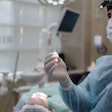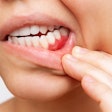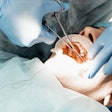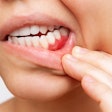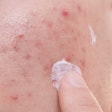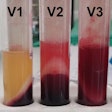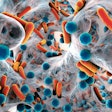
BOSTON - With more than 700 species of bacteria found in patients' mouths, selecting the best antimicrobial to treat periodontal disease can be a serious challenge.
That challenge is made even more difficult by the fact that plaque biofilms are 1,000 times more resistant to antibiotics than other bacteria. Add to these difficulties the serious dangers of antibiotic overuse and the growing number of links being found between periodontal problems and systemic disease, and it's clear why determining the best way to use antimicrobials to fight periodontitis is more important -- yet trickier -- than ever.
— David Paquette, D.M.D.
"We're talking about a much more complex system than previously observed," said Denis Kinane, D.D.S., director of the University of Louisville's Oral Health and Systemic Disease Research Group, at the American Academy of Periodontology (AAP) annual meeting this week.
Speaking at a session, titled "Forward Thinking on Antimicrobials," Dr. Kinane told the audience not to be too reluctant to prescribe systemic antibiotics to patients with severe gum disease. "The more I read and the more I learn, I say, 'Why not?' These are patients whose basic treatment has failed," he said.
Dr. Kinane, who was a periodontology professor at the University of Glasgow in Scotland until 2002, said that European dentists are strongly against using systemic antimicrobials.
In 2007, the ADA recommended that dentists stop giving many patients prophylactic antibiotics, saying that the risks of preventive antibiotics outweigh the benefits for most, including those with mitral valve prolapse and rheumatic heart disease.
And some dentists are reluctant to prescribe systemic antibiotics to patients, given the emergence of superbugs resistant to antibiotics, Dr. Kinane noted. These bugs developed in part because antibiotics were being overused.
But these antibiotics can be especially valuable in reducing systemic inflammation and bacteremias (bacteria in the blood that can lead to infections throughout the body), he said. Some 40% of extractions create bacteremias, while 13% of toothbrushing and 11% of dental probing also can cause them, according to Dr. Kinane.
What to prescribe and when
Discussing the risks and benefits of various systemic antibiotics, Dr. Kinane said that penicillin V remains a good first-line drug. Azithromycin appears to be quite effective, since it is delivered directly to infected sites and has fewer side effects than other drugs, but it is expensive, he noted.
Metronidazole can be especially potent when prescribed along with azithromycin, Dr. Kinane said. Studies show that taking a cocktail of these two drugs is more effective over the long term than other drugs, with significantly fewer people suffering from deep periodontal pockets after six months than patients in control groups.
Some topical antibiotics are proving effective, too, especially when combined with traditional scaling and planing. When dentists administered minocycline microsphere antimicrobials, along with scaling and planing, they found a twofold reduction in gum pocket depths, said David Paquette, D.M.D., a professor of periodontology at the University of North Carolina School of Dentistry. They also found improvements in patients' cholesterol and C-reactive protein levels.
"There is an adjunctive role for local antimicrobials -- not only for infection, but also for inflammation," he said.
For patients with severe disease, however, local antimicrobials are not appropriate.
The speakers also told session attendees that it may be unnecessary to culture patients' bacteria before prescribing antibiotics. A recent study found that culturing made no difference to clinical outcomes, a finding that surprised the scientists who conducted the research, Dr. Kinane said.
In the future, the only use for microbial testing may be to see which patients remain infected after treatment, he said.
Copyright © 2009 DrBicuspid.com










